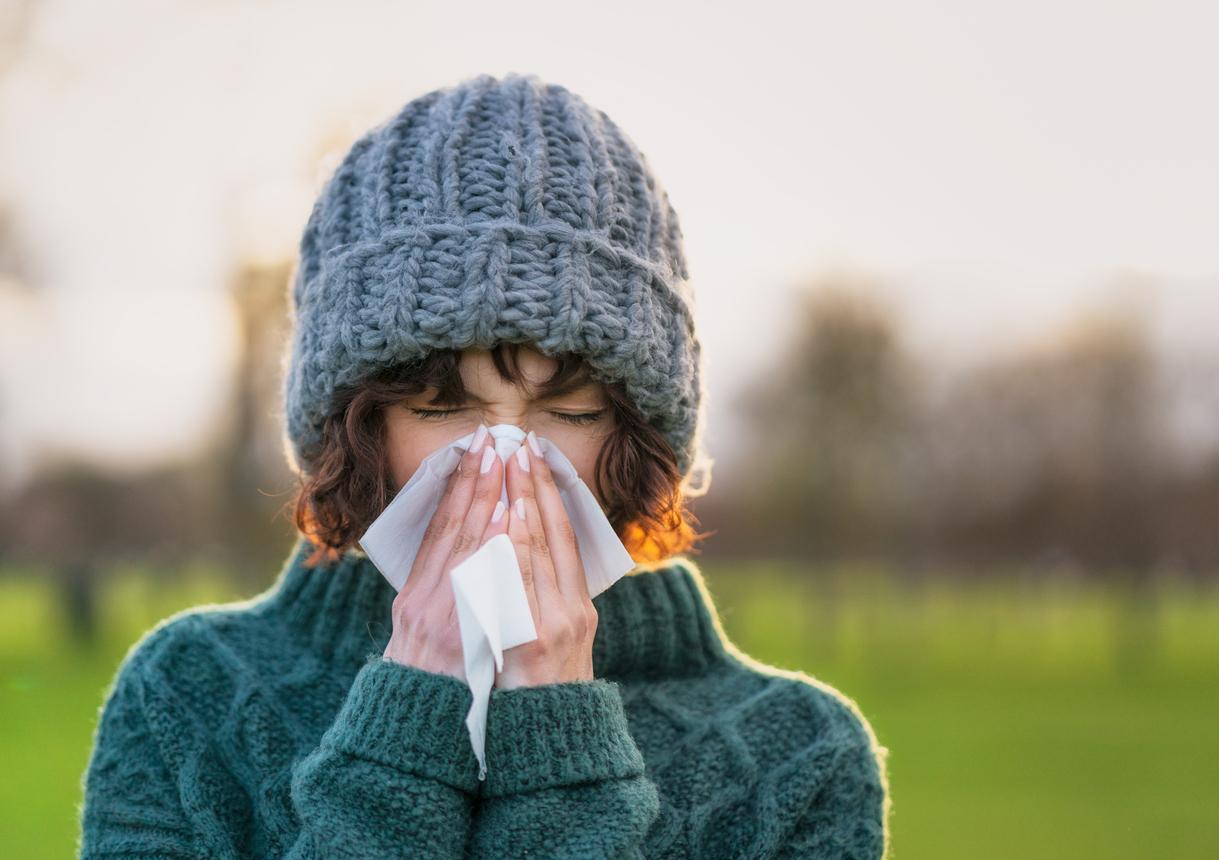Respiratory syncytial virus (RSV)
Peer reviewed by Dr Krishna Vakharia, MRCGPAuthored by Dr Doug McKechnie, MRCGPOriginally published 5 Nov 2024
Meets Patient’s editorial guidelines
- DownloadDownload
- Share
- Language
- Discussion
In this series:Respiratory syncytial virus (RSV) vaccination
Respiratory syncytial virus (RSV) is a common infection which usually causes mild cold-like symptoms but can be more serious especially for babies, toddlers, and older people. Here we explain what causes it, what its symptoms are, and how it is treated.
In this article:
Video picks for Viral infections
What is respiratory syncytial virus (RSV)?
Respiratory syncytial virus (RSV) is a common virus that usually causes mild illnesses such as the common cold in older children and adults. It can cause more serious infections in babies, toddlers, and older adults.
What is RSV in babies?
In babies, RSV is the most common cause of bronchiolitis, which is inflammation of the small airways of the lungs. Bronchiolitis is very common and usually happens in the winter months during the RSV season. Most children have a mild illness, but some need hospital treatment. Very rarely, bronchiolitis can be deadly.
See bronchiolitis for more detail.
RSV symptoms
Back to contentsRSV can cause infections in your:
Upper respiratory tract - nose, throat, sinuses, voice box (larynx), and windpipe( trachea).
Lower respiratory tract - the lungs and lower airways (bronchi).
The symptoms are different depending on which parts are affected and between adults and younger children.
RSV symptoms in adults
In adults, RSV commonly causes an upper respiratory tract infection. This can cause:
A blocked or runny nose.
Sneezing.
Cough.
Sore throat.
Headache.
High temperature (fever).
A hoarse voice (laryngitis).
These symptoms can be caused by lots of different respiratory viruses, and often there is no way to tell which one is causing it without testing.
However, viral upper respiratory tract infections get better with time and without specific treatment - so knowing the exact virus usually doesn't make any difference.
RSV can also cause lower respiratory tract infections, such as pneumonia. This is more common in older adults and people with a severely weakened immune system.
Lower respiratory tract infections can cause:
A cough - including coughing up blood.
High temperatures.
Feeling short of breath or out of breath.
Rapid or shallow breathing.
Chest pain.
Confusion.
Drowsiness.
RSV symptoms in babies and infants
RSV can cause upper respiratory tract infections in babies and infants too, with the typical cold symptoms such as:
Runny nose or blocked nose.
Cough.
High temperature.
RSV can also cause bronchiolitis. Babies and infants with bronchiolitis may have:
Cough.
Runny or blocked nose.
High temperature.
Wheezing.
Signs of difficulty breathing requiring emergency medical attention, such as:
Nostrils opening out (flaring) when breathing.
Skin between the ribs, or under the ribs, being sucked inwards when breathing (recessions).
Being too breathless to feed.
Fast or rapid breathing.
In severe cases, babies with RSV bronchiolitis can develop:
A grunting noise when breathing out.
Pauses where they stop breathing.
Blue lips or skin.
These are signs of serious breathing difficulties - call 999 or go straight to your nearest A&E if your child has any of these.
Continue reading below
RSV causes
Back to contentsRSV spreads from person to person (contagious) through droplets released into the surrounding air when someone with RSV coughs or sneezes. RSV can survive on hard surfaces for several hours.
You can catch RSV by:
Breathing in RSV-containing droplets - if you are close to someone with RSV who is sneezing or coughing.
Having direct contact with someone with RSV - such as kissing the face of a baby with RSV.
Touching something with RSV-containing droplets - such as a surface that someone has sneezed or coughed on - and then touching your face or mouth with that hand.
Touching something is the most common way RSV spreads and is why washing your hands regularly helps to prevent infection.
RSV treatment
Back to contentsTreatment for RSV involves managing the symptoms, whilst the body clears the virus on its own. There is usually no specific treatment for RSV.
For mild RSV infections, such as the common cold, no treatment is needed - it will get better with time. Medicines can be used to treat the symptoms and make people feel better, but don't actually speed up recovery from the infection. For example:
Paracetamol or ibuprofen are useful for treating pain or fever.
Nasal saline drops or a snot sucker can help with nasal congestion in babies.
A cool mist humidifier or a steamy bath can help to ease nasal congestion.
If you have a severe RSV infection, you might need hospital treatment - this might include:
Oxygen - if your levels are low.
Intravenous fluids - if you are dehydrated.
Feeding through a tube - if you are unable to feed well enough, particularly for babies.
Breathing support with a ventilator, in severe cases.
There are some anti-viral medicines which treat RSV directly, which are:
Ribavirin.
Intravenous immunoglobulin against RSV.
There is limited evidence that these are effective and ribavirin has side-effects. So, they are only sometimes used - usually if you have a severe RSV infection, and particularly if you have a severely weakened immune system.
Continue reading below
RSV complications
Back to contentsIn some people - especially babies, young children, older adults, and people with a severely weakened immune system - RSV can cause complications which may mean that they need to be admitted to hospital.
RSV related infections are one of the most common reasons for children going to hospital with around 31,000 in England admitted each year. Older people are also more likely to need to be admitted to hospital for RSV-related complications.
These figures come from before the RSV vaccination programme (see below) was introduced in the UK. If enough people get vaccinated, the number of people needing hospital admission should drop substantially.
RSV complications include:
Respiratory failure - oxygen treatment may be required, and sometimes breathing support with a ventilator.
Ear infection (otitis media).
Dehydration and difficulty feeding - particularly in babies.
Death.
It's rare for RSV infections to be fatal in children in the UK, but around 20 to 30 children die each year from them.
In older people, RSV is more likely to be fatal. It's often not specifically tested for, so exact figures are difficult to confirm but it is estimated to cause 5000 to 7000 deaths in older people each winter in England and Wales.
RSV prevention
Back to contentsRSV can be spread from person to person.
There are things you can do to reduce the risk of catching, or spreading, the infection:
Wash your hands regularly, especially after being in public places or touching potentially-contaminated surfaces.
Avoid touching your face with unwashed hands.
Clean and disinfect regularly-touched surfaces.
Clean and disinfect toys, and other objects that children might share.
Use a tissue or your elbow to cover coughs and sneezes, and then wash your hands immediately.
Avoid close contact with people who are sick, if you can.
Stay home if you are unwell, to avoid exposing other people to the virus.
Try to avoid taking babies to crowded places - if possible.
Stop smoking - smoking make RSV illnesses worse. Children who are exposed to tobacco smoke are more likely to get bronchiolitis.
High-risk children can also be given a medicine called palivizumab (Synagis) which contains purified antibodies against RSV, which help to protect against serious infection.
In the UK, this is given to premature babies with lung disease, babies and infants with serious heart lung conditions, and babies and infants with a certain type of severe immunodeficiency.
RSV vaccine
We now have vaccines that protect against RSV infection.
In the UK, this is given to pregnant women and older adults. Giving the vaccine to pregnant women means that they produce antibodies against RSV and pass these on to their babies in the womb, meaning that their babies have protection against RSV for the first few months after birth.
See RSV vaccine for more information.
Patient picks for Viral infections

Infections
Flu
Flu (influenza) is a contagious viral infection that is common in winter. It can cause sudden symptoms such as fever, aches, cough, sore throat, and tiredness, making everyday tasks difficult. Whilst most people recover within a week, flu can lead to serious complications in children, older adults, pregnant women, and those with underlying health conditions. This leaflet explains the different types of flu, symptoms, prevention, and when to see a doctor.
by Dr Doug McKechnie, MRCGP

Infections
Common cold
The common cold is a viral infection that causes symptoms such as a runny or blocked nose, sneezing, sore throat, cough, and feeling generally unwell. Most colds improve within 7–10 days with home remedies and over-the-counter medication. Practicing good hygiene helps prevent spreading it to others. This leaflet explains what causes the common cold, how to ease discomfort at home, and when to see a doctor.
by Dr Philippa Vincent, MRCGP
Further reading and references
- Chatterjee A, Mavunda K, Krilov LR; Current State of Respiratory Syncytial Virus Disease and Management. Infect Dis Ther. 2021 Mar;10(Suppl 1):5-16. doi: 10.1007/s40121-020-00387-2. Epub 2021 Mar 3.
- Respiratory syncytial virus: the green book, chapter 27a; Public Health England (July 2024)
Continue reading below
Article history
The information on this page is written and peer reviewed by qualified clinicians.
Next review due: 5 Nov 2027
5 Nov 2024 | Originally published
Authored by:
Dr Doug McKechnie, MRCGPPeer reviewed by
Dr Krishna Vakharia, MRCGP

Ask, share, connect.
Browse discussions, ask questions, and share experiences across hundreds of health topics.

Feeling unwell?
Assess your symptoms online for free
Sign up to the Patient newsletter
Your weekly dose of clear, trustworthy health advice - written to help you feel informed, confident and in control.
By subscribing you accept our Privacy Policy. You can unsubscribe at any time. We never sell your data.